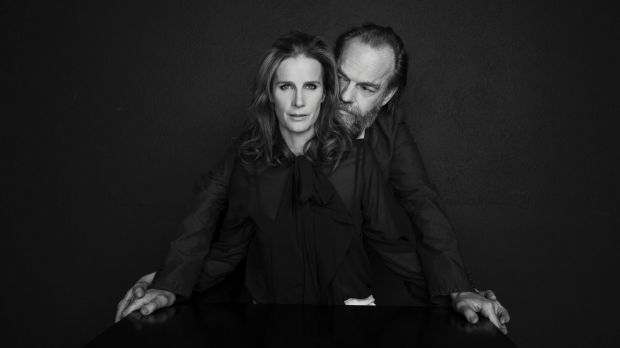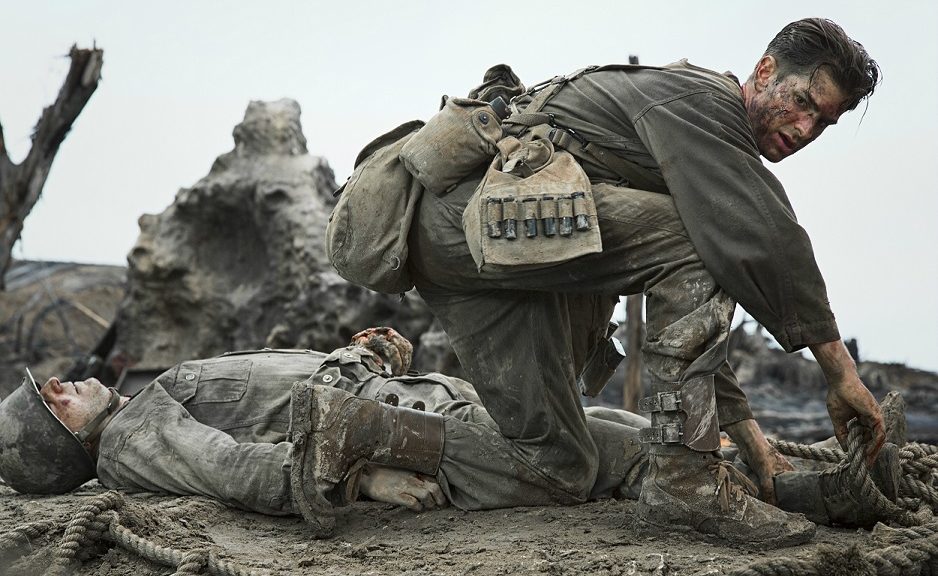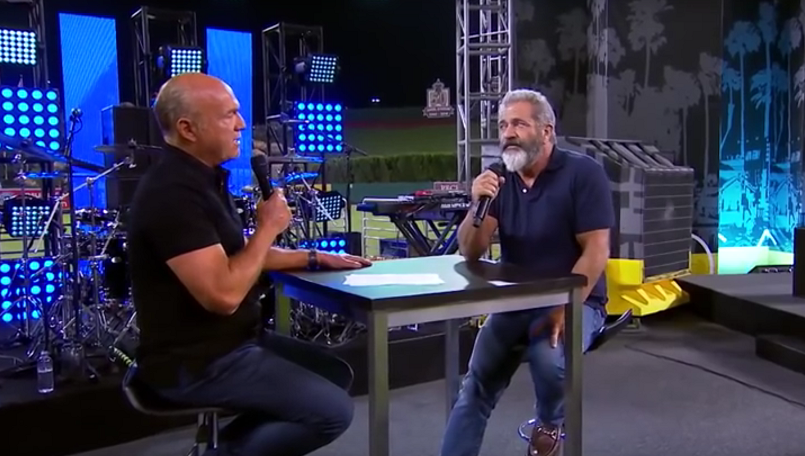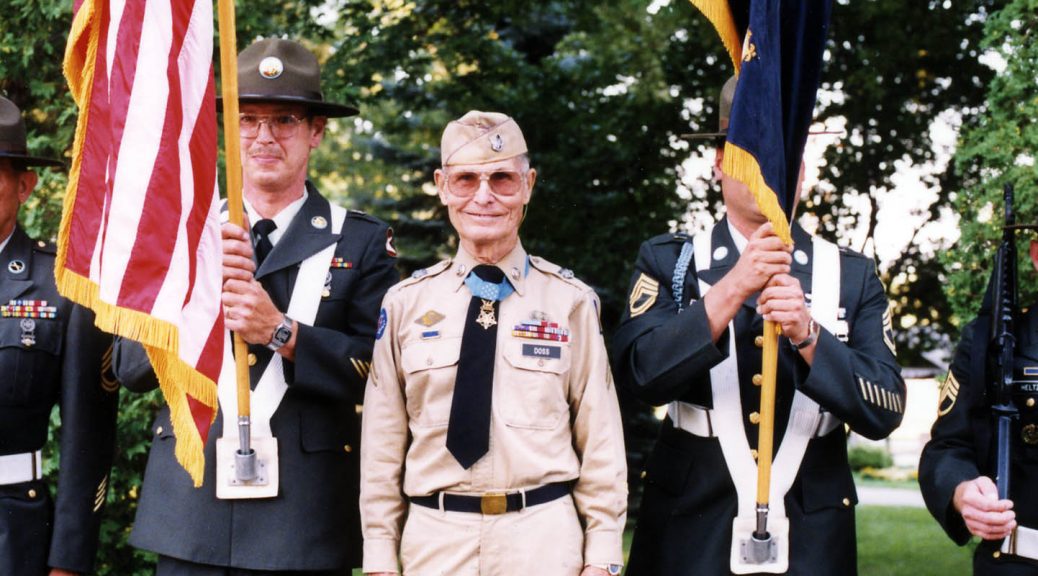
In this interview with the Sydney Morning Herald, Australian actor Rachel Griffiths discusses why the tension between Doss’ parents early in the film is essential to completely convey the message. She says, “It’s not a big role but it’s important to set up that it’s the mother that creates the moral point of view for the boy. We had to establish that then our scenes [as a married couple] really show that generational trauma that war will leave.” Photo credit: Nic Walker.
As the reviews of Hacksaw Ridge continue to pour in, one thing is clear – Mel Gibson’s Desmond Doss biopic is a heroic tale that must be seen. And you’ll struggle not to be moved by the story of the first conscientious objector to receive the US Medal of Honor for bravery on the battlefield. In fact, Gibson said, “You’d have to be made of stone to not respond to the true story of who this man was and what he did”.

If you’re not one who normally visits the cinemas, you may be weighing up whether you should make the trip in to see Hacksaw Ridge. According to Payorwait.com, this is one of Mel Gibson’s top directorial efforts – and is well worth the price of admission.
Writing for Aletia, film critic David Ives describes how Hacksaw Ridge’s battle scenes are harrowing, not shying away from the blood, gore and horrific realities of war – but this gritty realism only reinforces the power of Desmond’s actions. Despite these challenges scenes, this is an immensely entertaining film that leaves viewers considering their own convictions.

In this interview with Greg Laurie at the SoCal Harvest Crusade in late August, Hacksaw Ridge director Mel Gibson outlines why the story of Desmond Doss needs to be shared. Elsewhere, Gibson also talks about a potential follow up to another of his powerful films with religious influence – The Passion of the Christ.

You can’t help but be inspired, moved and challenged as you read Hero of Hacksaw Ridge.
By Adele Nash.
Order your free copy of the book reviewed in this article – The Hero of Hacksaw Ridge.
The opening of Hacksaw Ridge tells us that this film is a true story. And this may arouse some cynicism in people. Some may wonder how much of the story that Hacksaw Ridge tells really is true, and question just how the faith and belief of one man could make such a difference in the world around him.
But the story of Private Desmond Doss is true — and it’s even more remarkable for being so. If you want to find out more about the life of Desmond Doss, Hero of Hacksaw Ridge is a great place to start. Hero of Hacksaw Ridge is an abridged version of historian Booton Herndon’s book The Unlikeliest Hero, which is an authorised biography. It shows you much more about the life of Doss than the film does, including many of his heroic acts in saving men injured in battles prior to the assault on Hacksaw Ridge.
Hero of Hacksaw Ridge provides some historical detail that gives greater context to the situation Doss finds himself in. This detail aids in further understudying the conditions surrounding being a conscientious objector, including how the Congress of the United States specifically wrote provisions for conscientious objectors to be assigned to medical departments into their military draft law following WWI. Information is also given about Army medical training and exercises.
It’s no dry text though — it’s a book you don’t want to put down as you read more about Doss’s life, including childhood experiences, all of which show he was always a caring, giving individual who was deeply concerned with the welfare of others. This carried over into his military training days, where he was actually treated harshly because he was so different and resented for not participating in rifle training. His unpopularity grew over his insistence on keeping the Sabbath, the Seventh-day Adventist Church’s day of worship. There were even threats to kill him in combat. And yet he kept helping, assisting and caring. Over time, this earned him not only respect, but undying loyalty.
There’s a conscientiousness about Doss that extends far beyond being a conscientious objector — he was dedicated to everything he put his hand to, didn’t back down on his convictions and was courageous. This courage is on display when it comes to the chapters about his service as an Army medic. Hacksaw Ridge is not the only place here he saved the lives of many men, putting his own life at risk to do so. The first place he sees action is in Guam, where he goes out on patrols even though he doesn’t have to. When questioned why he makes so much of an effort, Doss says, “I know these men; they’re my buddies. They have families, some have wives and children. If they’re hurt, I want to be there to take care of them.”
The chapters on the assault on Hacksaw Ridge, the work Doss did in rescuing so many injured men and his own injuries are excellent and moving, scattered with a mixture of hope and tragedy. Doss is more than deserving of the honours he received for bravery. The full text of the Congressional Medal of Honor citation is included in Hero of Hacksaw Ridge. The Congressional Medal of Honor wasn’t the only award Doss received for his heroic acts — he also received a Bronze Star for valour, the Purple Heart with two Oak Leaves and a number of other medals.
In addition to the biography of Desmond Doss, a 32-page exploration of the Seventh-day Adventist faith has been included in the book as a post-script. This is a worthwhile read if you want to find out more about the beliefs that motivated Doss.
You can’t help but be inspired as you read Hero of Hacksaw Ridge. In reading this biography of a man who was never satisfied with doing the bare minimum for others, but entirely satisfied with living a modest life for himself, I was moved and challenged. What am I doing to make the world around me a better place? What can I do to help those around me? How are the principles I live by making a difference?
Image courtesy of Desmond Doss Council.